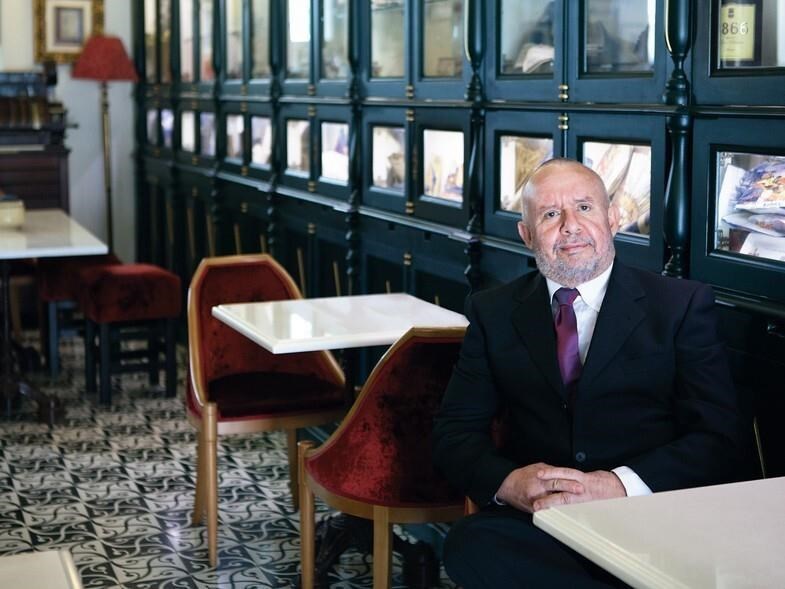Toronto filmmaker Barry Avrich was torn when asked to debut his new documentary, "Made You Look: A True Story About Fake Art," on CBC this Thursday instead of waiting for a post-pandemic festival window.
Avrich spent two years making the in-depth look at one of the largest art fraud scandals in American history, and it was supposed to premiere at the Hot Docs Canadian International Documentary Festival later this month.
But when the festival was postponed due to COVID-19, Hot Docs and the CBC partnered to debut a sample of the films in the lineup for free through the public broadcaster.
Avrich's film is now the first in the new, weekly "Hot Docs at Home on CBC" lineup, airing on CBC and the CBC Gem streaming service (at 8 p.m., 8:30 NT) and documentary Channel (at 9 p.m. ET/10 p.m. PT).
"With this opportunity, it wasn't a slam-dunk decision for me, because as a filmmaker you want a live audience at a film festival," says the prolific, Canadian Screen Award-winning writer-director-producer.
"You want the imprimatur of the stamp of it being at a film festival and then playing the film festival circuit, which then allows you to develop a strategy for international sales for the film, and with buyers from around the world that attend film festivals.
"So the decision for me was: 'Do I run with this, or do I wait until the fall and release the film?' And that was tricky."
Avrich concluded that waiting until the fall would likely mean going up against a flood of competition from other filmmakers who are also putting off their premieres.
Launching now on CBC gives him "a window to have some exclusivity" at a time when there's a captive audience at home, and he trusts the public broadcaster and Hot Docs to promote it properly, he adds.
"Would I release this at the same time as 'Tiger King?' No, but I think I've got the right window," Avrich says, referring to the wildly popular large-cat-breeding doc series that hit Netflix in March.
But in order to make that window, Avrich had to accelerate post-production and find ways to finish the film's colour correction and sound mixing with his team remotely. He says it was a "frustrating and time-consuming" process not being able to do that work together.
"Made You Look" profiles a New York-based art forgery scandal that was worth tens of millions of dollars and resulted in 10 lawsuits, nine of which were settled out of court, according to the film.
Former Knoedler Gallery president Ann Freedman was at the centre of the scandal and appears in the film, insisting she didn't know she was selling fake paintings with forged signatures of abstract expressionists including Jackson Pollock, Mark Rothko, and Robert Motherwell.
Some art experts in the film, however, say Freedman was a veteran art dealer and should have been more savvy.
Long Island art dealer Glafira Rosales, who sold the works to Freedman, spent three months in jail after pleading guilty in 2013 to various charges in relation to the scandal. Her Spanish boyfriend and alleged fraud mastermind, Jose Carlos Bergantinos Diaz, was also among those indicted.
The fake art was created by Pei-Shen Qian, a Chinese immigrant who admitted he made more than 60 master forgeries for Rosales at home in the New York City borough of Queens. But he claimed he didn't know about the fraud and avoided prosecution by fleeing to China.
Avrich, who also tackled the art world in his 2017 documentary "Blurred Lines," said he only wanted to do "Made You Look" if Freedman agreed to be interviewed on camera for it.
She was reluctant but he promised her it would be balanced, and they spent 20 hours together filming.
"She's a great salesperson, she's incredibly seductive, she's convincing, and you walk away from every interview with a different opinion," Avrich says.
"I think she wanted to believe (the art) was real, she got taken in and then by the time she ought to have known, it's too late and she just doubles down and keeps going, hoping that there'll be a happy ending here — but there's no happy ending."
Toronto theatre producer David Mirvish, who is briefly mentioned in the film, "was an unknowing investor in these fakes," Avrich says.
Avrich himself came across master fakes and copies at a factory he discovered in his research to find Qian in Shenzhen, China. The factory has Chinese artists who each specialize in a different school of art and can recreate the works of master painters.
"This is never going to go away," Avrich says.
"There will be fakes that are unearthed for the rest of our time. There are also plenty of fakes that are hanging in the most prestigious homes, museums and galleries around the world."
This report by The Canadian Press was first published April 15, 2020.
Victoria Ahearn, The Canadian Press



